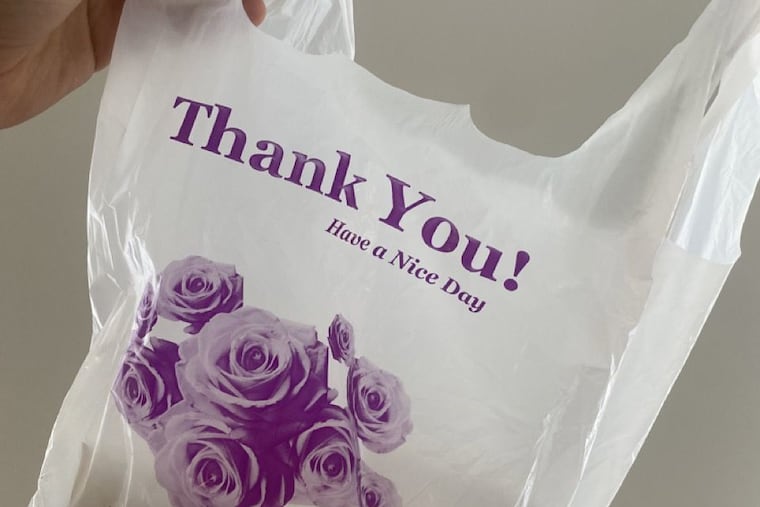Philly food trucks are still giving out plastic bags, despite citywide ban
21 out of 25 food trucks in the city are still using plastic bags, according to a new study. Businesses could face a minimum $150 fine for each violation.

Food trucks and carts in Philadelphia are still handing out plastic bags, despite a citywide ban on their use, according to a new study from PennEnvironment, a statewide nonprofit environmental advocacy organization.
The ban on bags, which began rolling out in Philadelphia on July 1, 2021, affects all businesses that use bags at their checkout or to deliver goods. It prohibits businesses from giving out single-use plastic bags or paper bags that are not made of at least 40% recycled material and meet other requirements. The law applies to supermarkets, food trucks, farmers markets, and department stores, among others.
“Plastic bags are usually used once for just a few minutes, and from there they end up as litter polluting our city and our environment,” said Faran Savitz, an advocate at the PennEnvironment Research & Policy Center, in a statement.
In the center’s new study, researchers found that 84% of the food trucks or carts surveyed gave customers a plastic bag with their order, while 12% used paper bags and 4% didn’t use a bag at all. The study examined 25 food trucks and carts located across the city, by visiting them once between Aug. 1 and Oct. 26, 2023.
Although the study looked at a variety of carts across different parts of the city, Savitz says the results show there was “pretty widespread plastic bag use.”
When a ban like this gets adopted, there can be an adjustment period for businesses to adhere to the new regulation, says Savitz. Businesses have to find new bags, and some might have stock of plastic bags they need to use up, he says.
“With two years since Philadelphia implemented their bag ban and four years since it initially passed City Council, there’s been a lot of time for adjustments,” he said.
The report comes as other businesses have successfully abided by the ban. Grocery stores reduced their use of plastic bags, according to a report published this year that was commissioned by the city and used data gathered between June 2021 and August 2022. The report estimates that the ban has prevented 200 million plastic bags from being used. Prior to the ban’s adoption, city officials had said that one billion plastic bags were used each year.
“All businesses should follow the current laws in order to reach our goals of zero waste and eliminate the single-use plastics that directly damage our health, environment, and waterways,” said City Councilmember Mark Squilla in a statement.
The city had said it would begin issuing violations against noncompliant businesses starting in April 2022. Businesses can face fines of $150 or more per violation. The city has so far given out 106 violation notices since April of last year and has received 106 complaints since the start of 2023.
“The bag ban isn’t meant to be a hardship for businesses,” said Savitz. “It’s a collaboration between the city with stakeholders, with the businesses, to make our environment cleaner and safer.”